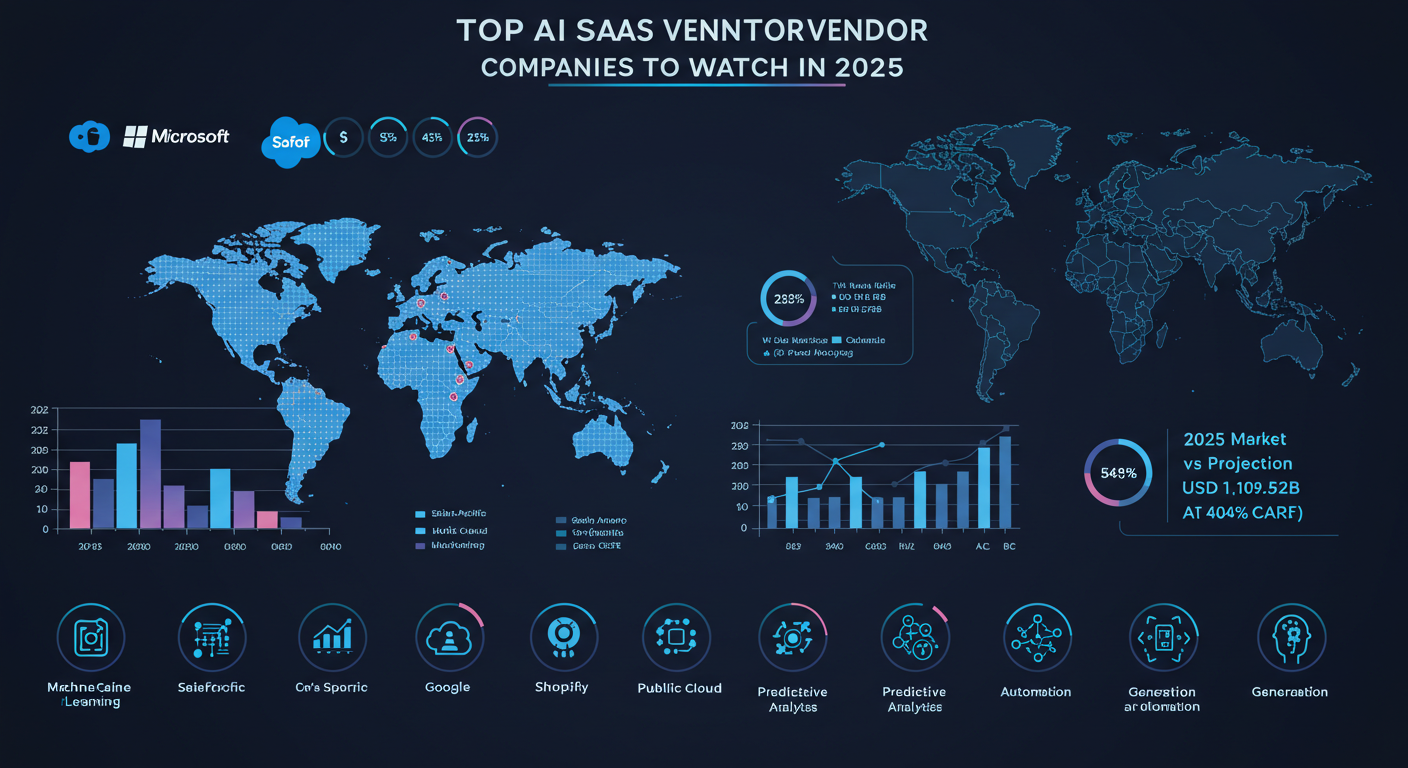AI SaaS (Artificial Intelligence as a Service) basically (in terms of understanding) is such a model, work or process in which any type of business and companies are provided ready-made AI tools through cloud after deep research. AI (Artificial Intelligence) SaaS providers use the power of cloud in countless ways and make AI capabilities such as computer vision, natural language processing, and machine learning easily available as online services.
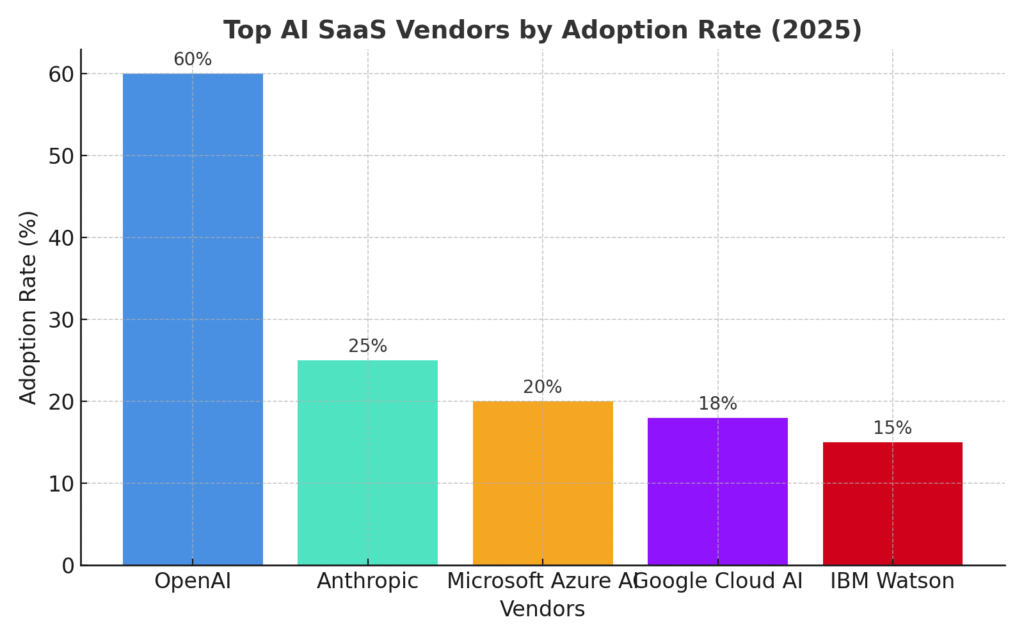
Global AI-Created SaaS Market Outlook (2025–2032)
According to Grand View Research, the AI SaaS vendor company market worldwide will grow very fast from the present year until 2032 at a rate of 40.4% CAGR — in 2025 its value was USD 101.73 billion and in the future by 2032 it is predicted to reach USD 1,094.52 billion.
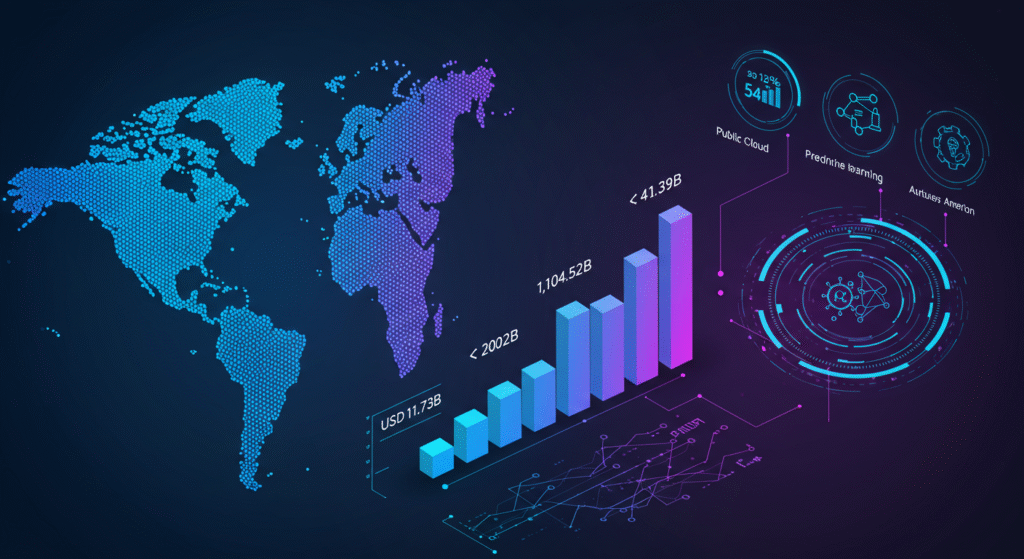
The biggest reason behind this growth is that businesses, agencies, and companies are rapidly adopting AI-powered software from top vendors like Microsoft Azure AI, Google Cloud AI, and OpenAI for high speed and efficiency.
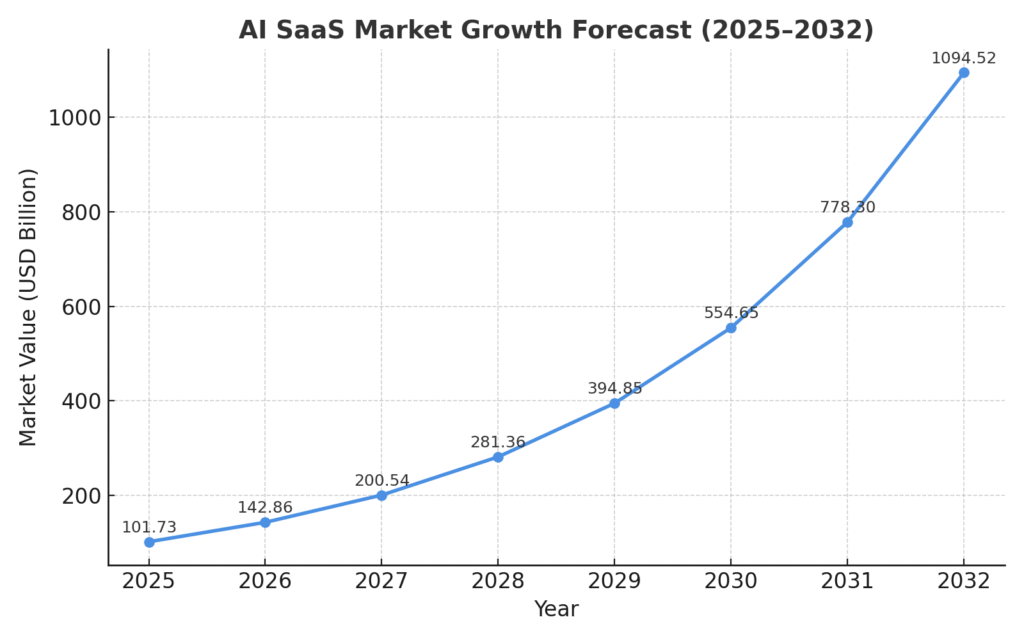
In 2025, the public cloud (~54.8%) and machine learning segment (~41.3%) are leading, while Asia-Pacific (~21.4%) and North America (~46.2%) are the top two regions. Predictive analytics, automation, and generative AI are taking things to the next level, and Azure OpenAI is helping platforms become more widely adopted.
What is an AI SaaS Vendor?
In simple words, an AI SaaS vendor is a service provider who hosts software and gives users (accessors) online access, while also adding AI features to make their work faster, smarter, and more efficient so that it becomes even easier for the users.
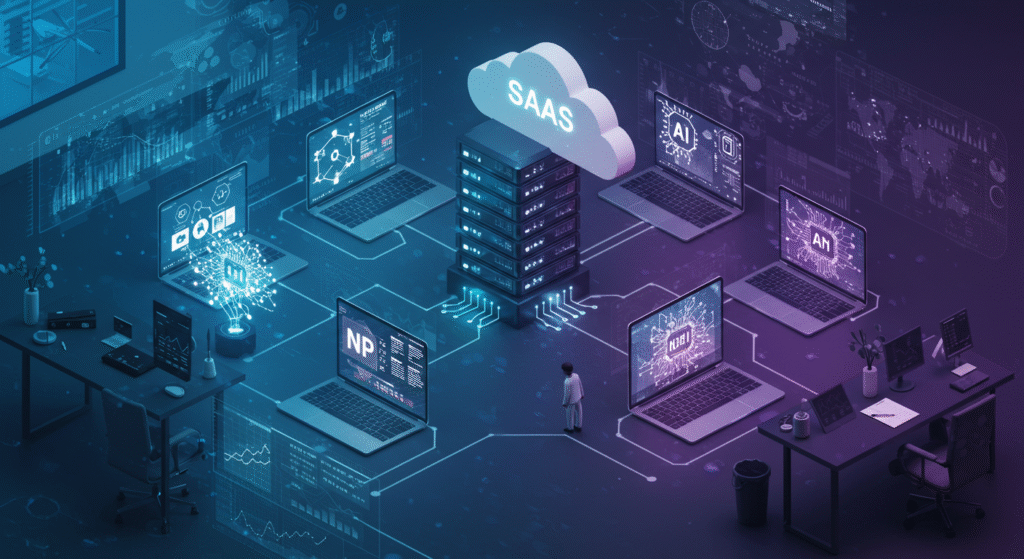
AI SaaS (Artificial Intelligence as a Service) in easy terms means a package or process in which the benefits of both SaaS (Software as a Service) and AI (Artificial Intelligence) are combined. Take my example: with the help of pre-made software solutions, AI SaaS vendors and providers are able to offer cloud services.
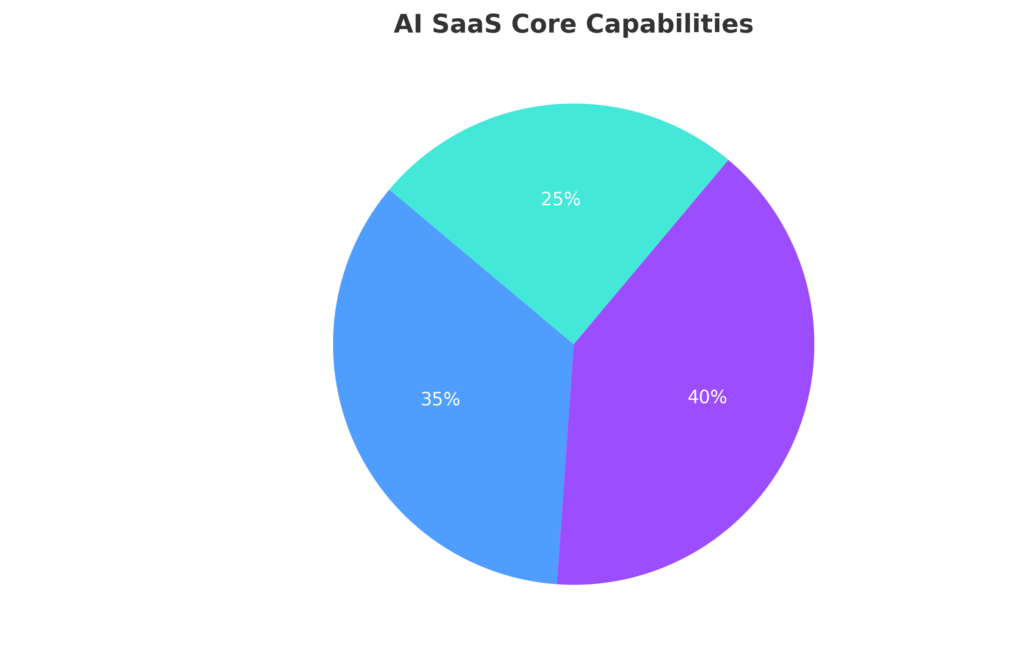
Its capabilities include natural language processing, machine learning, and computer vision. The benefit of this is that businesses, without heavy infrastructure or large investment, can use these tools directly through the internet.
Best AI SaaS Vendor Companies
1. Microsoft
Microsoft is a top high-level AI-SaaS provider whose specialty is in Enterprise AI & Productivity. It integrates AI into cloud services (IT resources) and enterprise solutions (specialized software) so that convenience can be created for the user.
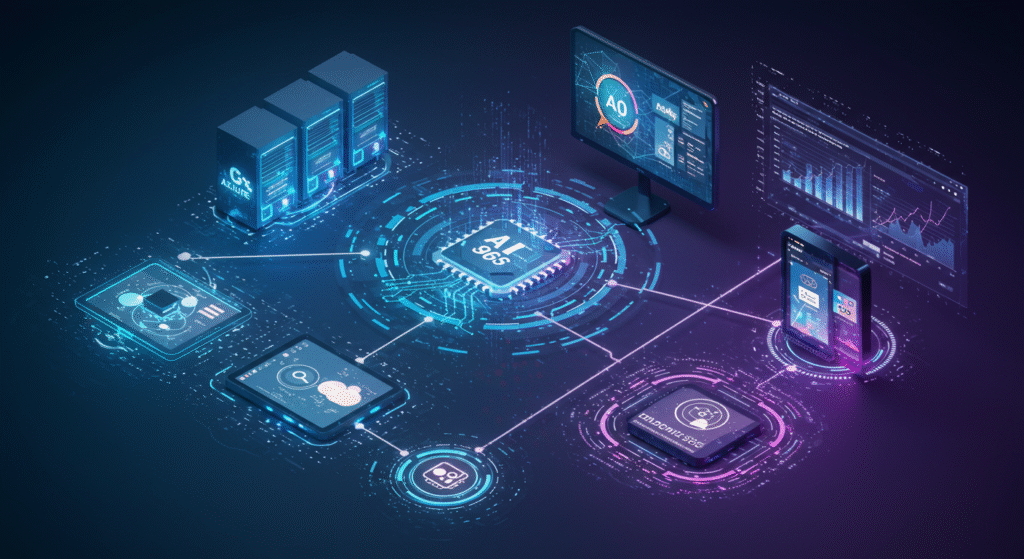
Platforms like Microsoft 365, Azure, and Dynamics 365 give businesses, agencies, or platforms AI-powered capabilities — or you could say AI power — in which Copilot automates up to 40% of workflows.
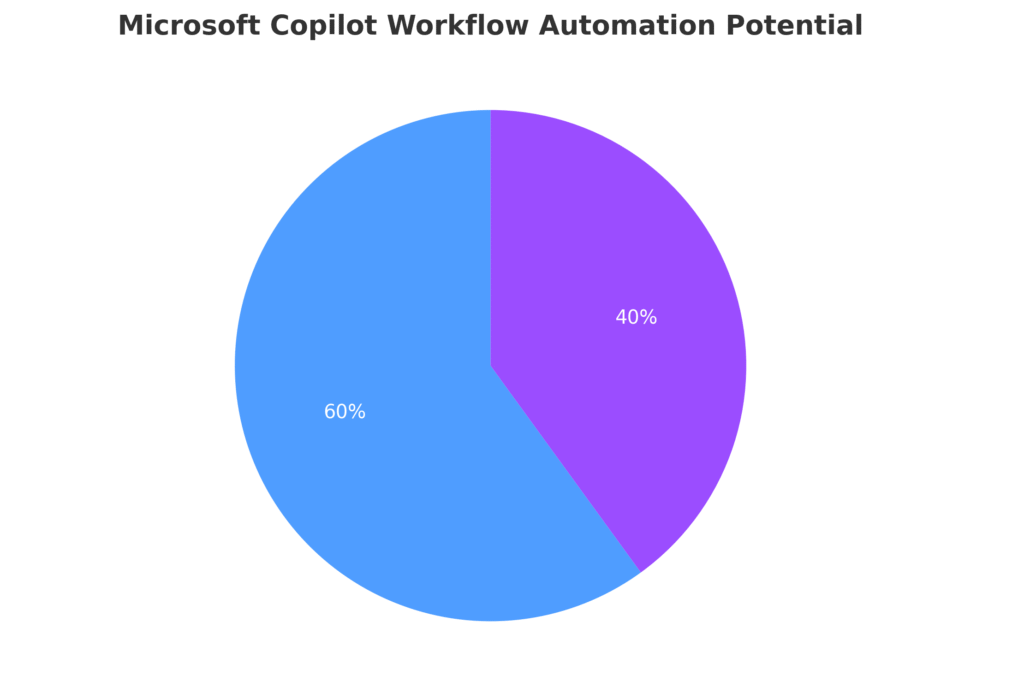
2. Salesforce
Salesforce is a top CRM (Customer Relationship Management) company that is based on clouds in San Francisco; its headquarters was made, and its founders are Marc Benioff and Parker Harris.
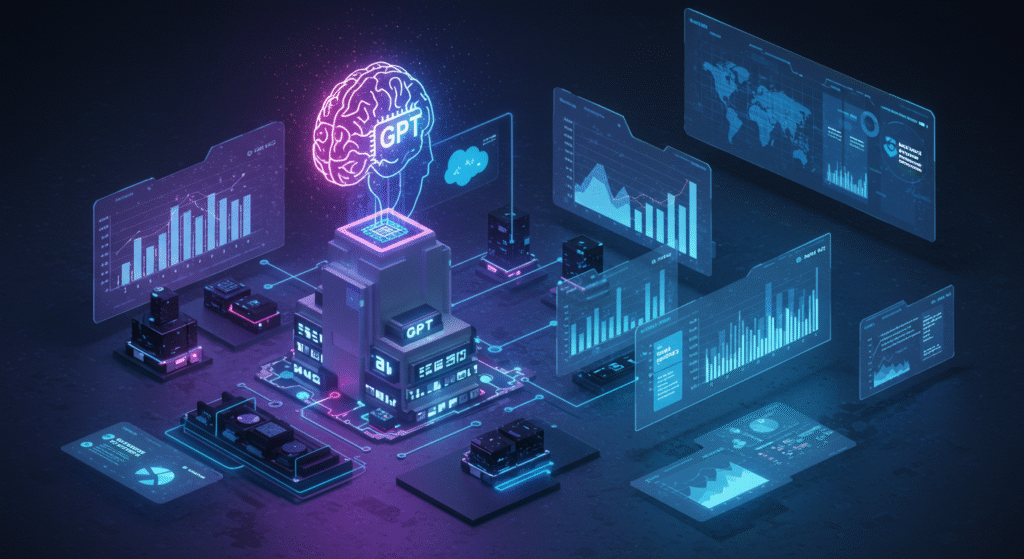
According to research, Einstein’s AI engine, Einstein GPT, was launched in 2024 and started working. It offers significant features including personalized recommendations, workflow automation, and predictive analytics.
According to my observation, customer accuracy decreased by 30%. Lead scoring, pipeline forecasting, and customer sentiment analysis are all among its common use cases, which help sales and support teams make decisions quickly and accurately.
3. Google
Google is the world’s largest search engine and a world-leading technology-based company that holds a strong position in AI, productivity tools (word processing), and cloud computing (computing services) which no one can compete with.
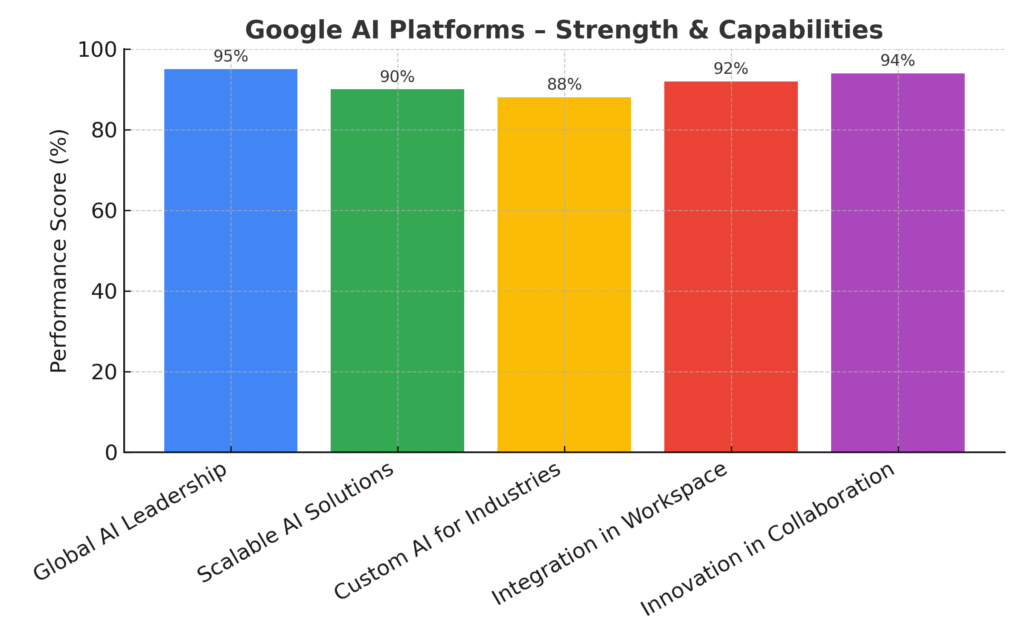
Its platforms, which are used all over the world, such as Google Cloud AI, Vertex AI, and AI-enabled Google Workspace, offer industries scalable, customized AI solutions. In 1998, Larry Page and Sergey Brin established the company, and today it is a part of Alphabet Inc. Under CEO Sundar Pichai, Google is setting new standards in AI innovation and collaboration.
4. Shopify
Shopify is an advanced e-commerce (buying and selling of goods and services over the internet) platform that also gives such merchants (wholesale trade) the opportunity to create and manage an online store who do not have much technical knowledge.
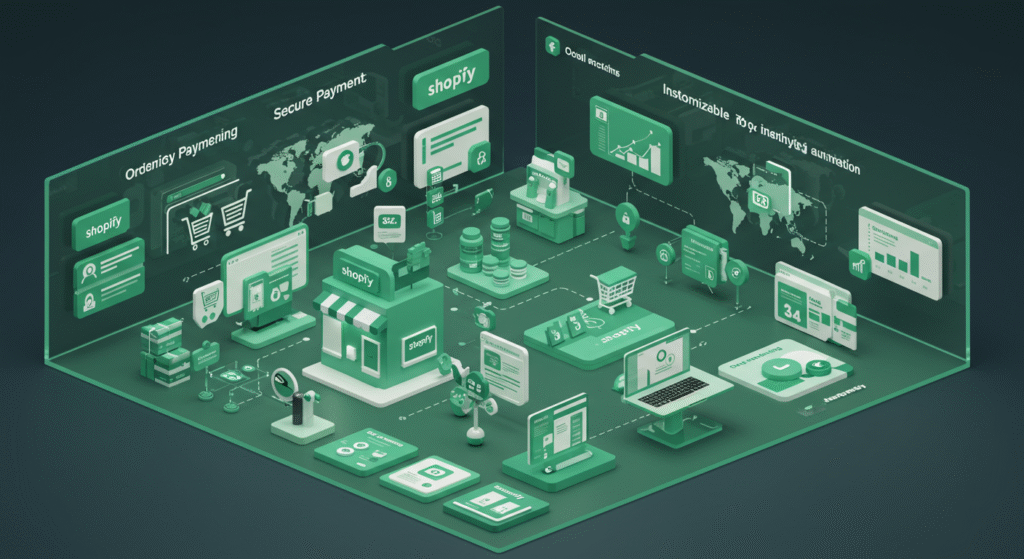
It provides order tracking, secure payment processing, product and inventory management, customizable templates, and point-of-sale features which are useful for in-person transactions. Sellers can use apps and integrations for marketing automation or print-on-demand, can fastly grow their business through the services or platforms of marketplaces and social media, and can take conversion and inventory insights from analytics dashboards. Inbuilt email, blogging, and SEO features help in business expansion.
5. Mailchimp
Mailchimp is a marketing automation (software that handles routine marketing tasks without the need for human action) and email marketing (the process of using email to connect with potential customers) platform which is designed for businesses of every size.
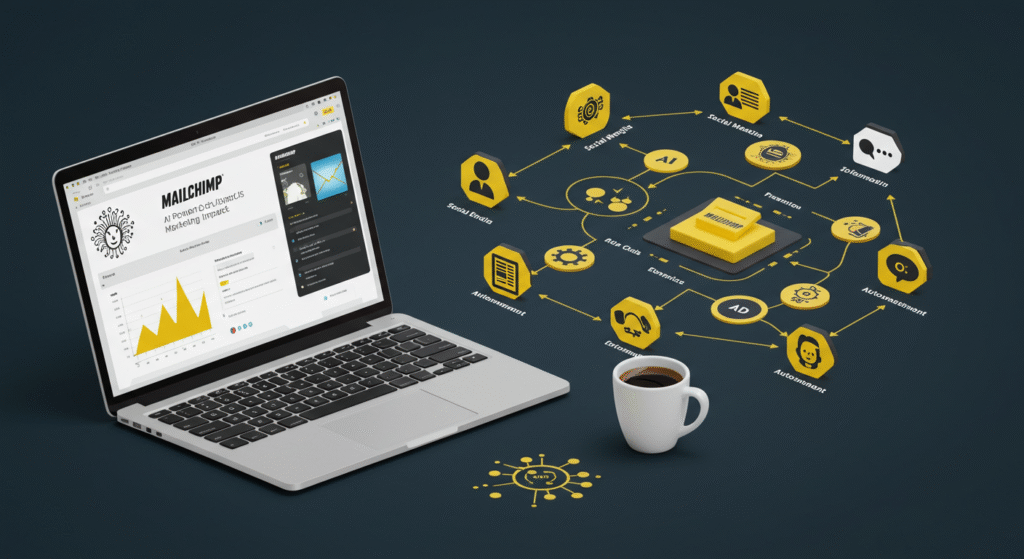
Ben Chestnut and Dan Kurzius, two persons, launched it in 2001 in the Atlanta area, whose purpose was to give small businesses easy digital marketing tools and open marketing paths. Mailchimp, through powerful AI tools and AI built-in tools, in email marketing, social media, and ads and other ways, improves and enhances customer engagement.
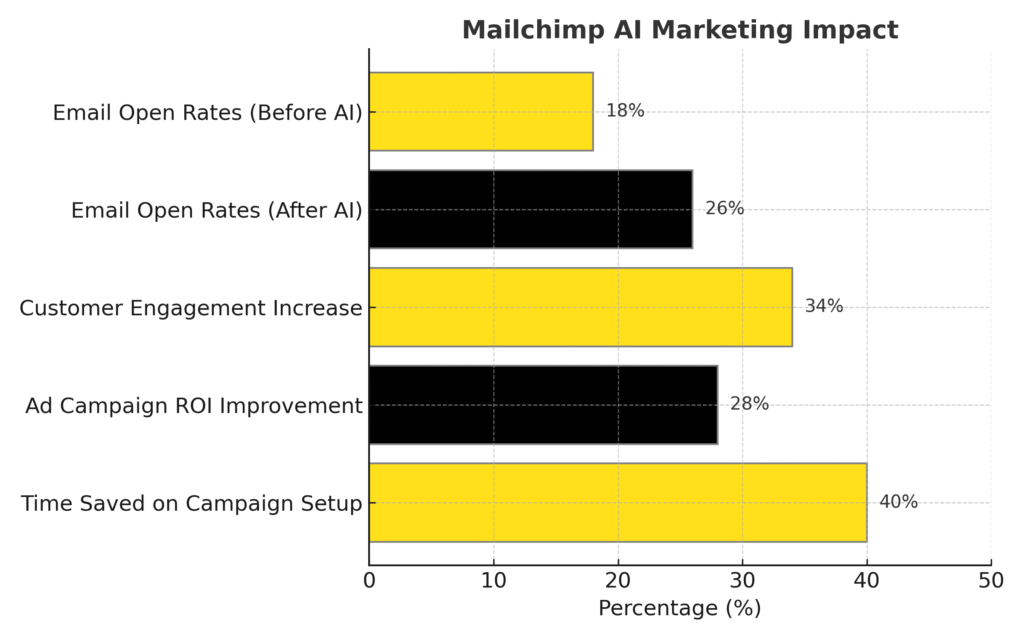
Conclusion
A new digital era of cloud computing is coming through AI SaaS vendors. From giants like Microsoft, Google, and Salesforce to big-level AI to niche players like Shopify and Mailchimp, organizations of various sizes have strong and easily accessible solutions. The AI SaaS market is expected to increase at a spectacular rate in 2032, and companies in the technology sector are adopting it because of its speed, efficiency, and innovation, which provide them a significant competitive edge.
